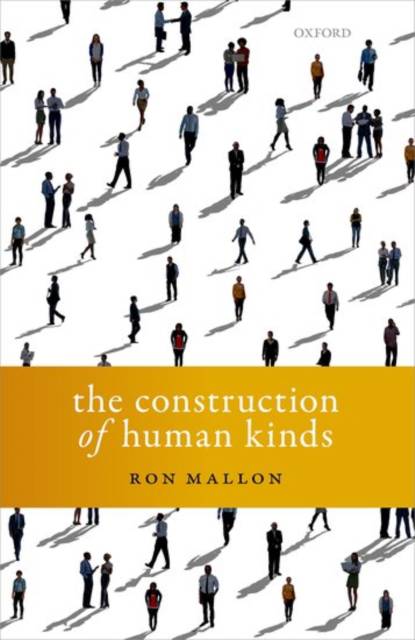
Door een staking bij bpost kan je online bestelling op dit moment iets langer onderweg zijn dan voorzien. Dringend iets nodig? Onze winkels ontvangen jou met open armen!
- Afhalen na 1 uur in een winkel met voorraad
- Gratis thuislevering in België vanaf € 30
- Ruim aanbod met 7 miljoen producten
Door een staking bij bpost kan je online bestelling op dit moment iets langer onderweg zijn dan voorzien. Dringend iets nodig? Onze winkels ontvangen jou met open armen!
- Afhalen na 1 uur in een winkel met voorraad
- Gratis thuislevering in België vanaf € 30
- Ruim aanbod met 7 miljoen producten
Zoeken
Omschrijving
Ron Mallon explores how thinking and talking about kinds of person can bring those kinds into being. Social constructionist explanations of human kinds like race, gender, and homosexuality are commonplace in the social sciences and humanities, but what do they mean and what are their implications? This book synthesizes recent work in evolutionary, cognitive, and social psychology as well as social theory and the philosophy of science, in order to offer a naturalistic account of the social construction of human kinds. Mallon begins by qualifying social constructionist accounts of representations of human kinds by appealing to evidence suggesting canalized dispositions towards certain ways of representing human groups, using race as a case study. He then turns to interpret constructionist accounts of categories as attempts to explain causally powerful human kinds by appealling to our practices of representing them, and he articulates a view in which widespread representations produce entrenched social roles that could vindicate such attempts. Mallon goes on to explore constructionist concerns with the social consequences of our representations, focusing especially on the way human kind representations can alter our behaviour and undermine our self understandings and our agency. Mallon understands socially constructed kinds as the real, sometimes stable products of our cognitive and representational practices, and he suggests that reference to such kinds can figure in our everyday and scientific practices of representing the social world. The result is a realistic, naturalistic account of how human representations might contribute to making up the parts of the social world that they represent.
Specificaties
Betrokkenen
- Auteur(s):
- Uitgeverij:
Inhoud
- Aantal bladzijden:
- 262
- Taal:
- Engels
Eigenschappen
- Productcode (EAN):
- 9780198755678
- Verschijningsdatum:
- 18/10/2016
- Uitvoering:
- Hardcover
- Formaat:
- Genaaid
- Afmetingen:
- 155 mm x 236 mm
- Gewicht:
- 521 g

Alleen bij Standaard Boekhandel
+ 132 punten op je klantenkaart van Standaard Boekhandel
Beoordelingen
We publiceren alleen reviews die voldoen aan de voorwaarden voor reviews. Bekijk onze voorwaarden voor reviews.











